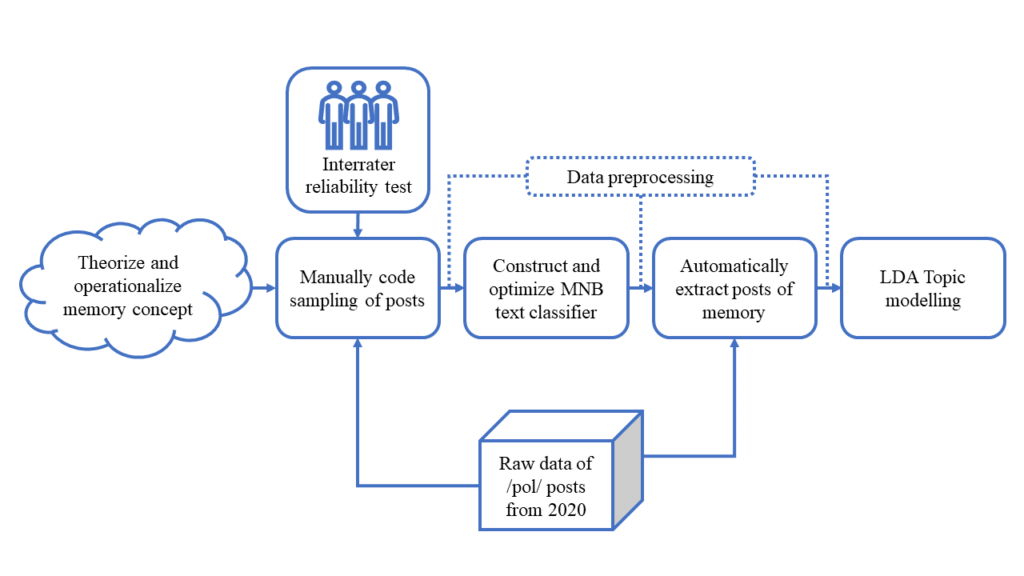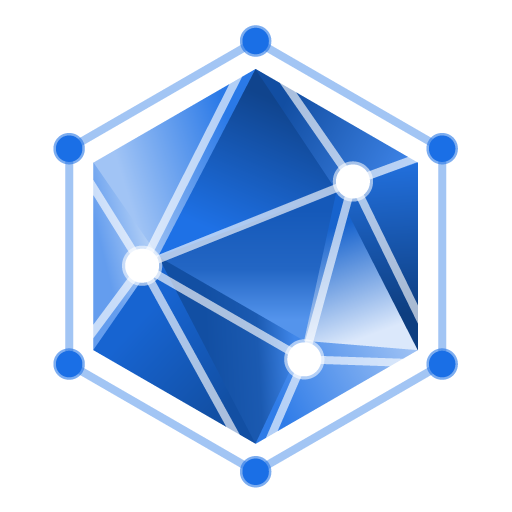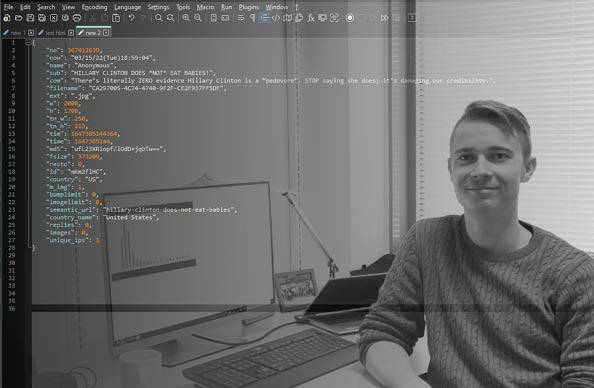“I believe that when combining digital methods with the humanities, a lot of really great research can be done.”
Phillip Stenmann Baun, Aarhus University
Ph.d. student at the Department of Global Studies (Aarhus University), Phillip Stenmann Baun, has a background in History and is now working within the interdisciplinary field of memory studies and digital methods. As an offshoot of work done during his master’s thesis, Phillip’s Ph.d. project, “Reject degeneracy; Remember tradition!” A Study of Far-Right Digital Memory Practices, examines uses of the past in far-right communication on digital media through the use of digital methods and Natural Language Processing (NLP) techniques. Based on large amounts of data from the “politically incorrect” forum on 4chan.org, the aim of the project is to examine how memory and history inform the contemporary far-right imaginary.
Thoughts on interdisciplinarity
I am proud to call myself ‘interdisciplinary’ – I work within the field of ‘memory studies’, a field that draws its strength from many different disciplines, and I definitely see the interdisciplinary approach as very productive.
Phillip Stenmann Baun, Aarhus University
According to Phillip, a fundamental prerequisite for the project’s methodology is the combination of digital methods with a traditional hermeneutic approach: by using digital methods, the project can examine large amounts of data that would otherwise be inaccessible. However, the critical humanist cannot be completely replaced by computational methods, for example when designing the algorithms and interpreting the results:
How do I manage to operationalize concepts such as ‘memory’, ‘culture’, or ‘identity’ into something that a machine can read? I find such questions extremely interesting, because it is precisely here that the role of historians and others within the humanities really becomes relevant; it is in fact the humanities who need to both ask and answer these questions in order to actually understand and interpret the empirical material.
Phillip Stenmann Baun, Aarhus University
As such, the dialogue between digital methods and the humanities is essential during the whole process, not just when analysing the data; for example, Phillip’s initial meeting with classification algorithms and topic modelling when working on his master’s thesis led to an increased awareness of the importance of semantics when developing computational models:
When searching for specific historical entities, I need to consider carefully how they are represented lexically in my material.
Phillip Stenmann Baun, Aarhus University
Both topic modelling and sentiment analysis, i.e. computational linguistic analysis of affective states, will be central for Phillip’s further research on far-right memory and crucial for identifying words and expressions within the dataset related to the collective heading ‘memory’.

Approaching UCloud from a humanities perspective
UCloud played a key role for Phillip when working on his master’s thesis, especially in the initial phase when he needed to interpret the performance of his predictive models. Optimizing and fine-tuning the so-called parameters of algorithmic models, especially when working with a lot of data, usually involves heavy amounts of computational power. Without UCloud, this process would have taken much longer.
Working within the sphere of digital methods, however, was – and still is – challenging for a researcher with a background in the humanities, though assistance and easy accessibility has made the process much simpler:
I am really an outsider regarding everything concerning digital methods. When I was first introduced to UCloud, I was still ‘on the outside’ regarding many of these things. But the interface is fairly straightforward even though I had difficulties knowing where to begin at first.
Phillip Stenmann Baun, Aarhus University
In general, Phillip stresses that much value can be gained from implementing digital methods in the humanities, if researchers are open towards the new computational developments within a traditionally very analogue field:
It’s a bit of a shame that we are not more ‘digitally literate’ within the humanities and do not apply programmatic thinking more in both teaching and research. In some ways, many of us are still sceptic regarding the computational development and may consider digital methods as less qualified than traditional hermeneutic interpretation. This scepticism can only be overcome by showing the potential benefits in marrying digital methods with humanities research, where the strengths of each side gets to complement the other.
Phillip Stenmann Baun, Aarhus University
With his newly started Ph.d. project on far-right memory, a project heavily reliant on a digital approach, Phillip is part of an increasing number of researchers within the humanities who are currently paving the way for future interdisciplinary developments within this field and is an inspiration to researchers and students alike.

Front office support for 4chan data
For this project the Interactive HPC Front Office at Aarhus University, CHCAA assisted by collecting all 4chan posts from the #pol channel for the previous two years. In this case CHCAA-frontoffice had already, due to prior requests, created an api-crawler for 4chan that ensured access to the required data.
The 4chan api (https://github.com/4chan/4chan-API) only provides historical data for a very limited timespan, so to be able to analyze a larger timespan of data we created an api-crawler that, on a daily basis, fetches all new threads (post and replies) since last fetch and stores them in a json-file.
Peter Vahlstrup, CHCAA-frontoffice, Aarhus University
There are no obstacles in accessing the 4chan data as 4chan both offers an endpoint for archived threads, that contains threads which can no longer be commented on because they have been “pushed off the last page of a board” [https://github.com/4chan/4chan-API/blob/master/pages/Archive.md] and an endpoint for fetching live threads, but there are pros and cons to both endpoints.
Using the archived and therefore locked threads endpoint ensure that all replies are included, but it has the downside of reduced information about the author of the post/reply. Using the live threads endpoint has a downside in retrieving all replies. Ideally, the thread should be fetched just before it is “pushed off the last page of a board” because it is now no longer possible to comment on the thread. Every time a thread is commented on it is bumped to the top of the board until it reaches the bump-limit and then is automatically locked. (Not all threads reach the limit though, so the bump-limit cannot be used a measurement alone for when to collect the thread.) This means that if we use the live threads endpoint, we need to fetch data more often to get all threads with all replies.
Peter Vahlstrup, CHCAA-frontoffice, Aarhus University
During the project [CHCAA-frontoffice] experimented with both endpoints and, as foreseen, the archived threads endpoint is the easiest to work with, but they found that the live threads endpoint is also possible to work with when you fetch everything every 12 – 24 hours and subsequently delete all other versions of the same thread so only the most recent version with the most up-to-date data is preserved.

